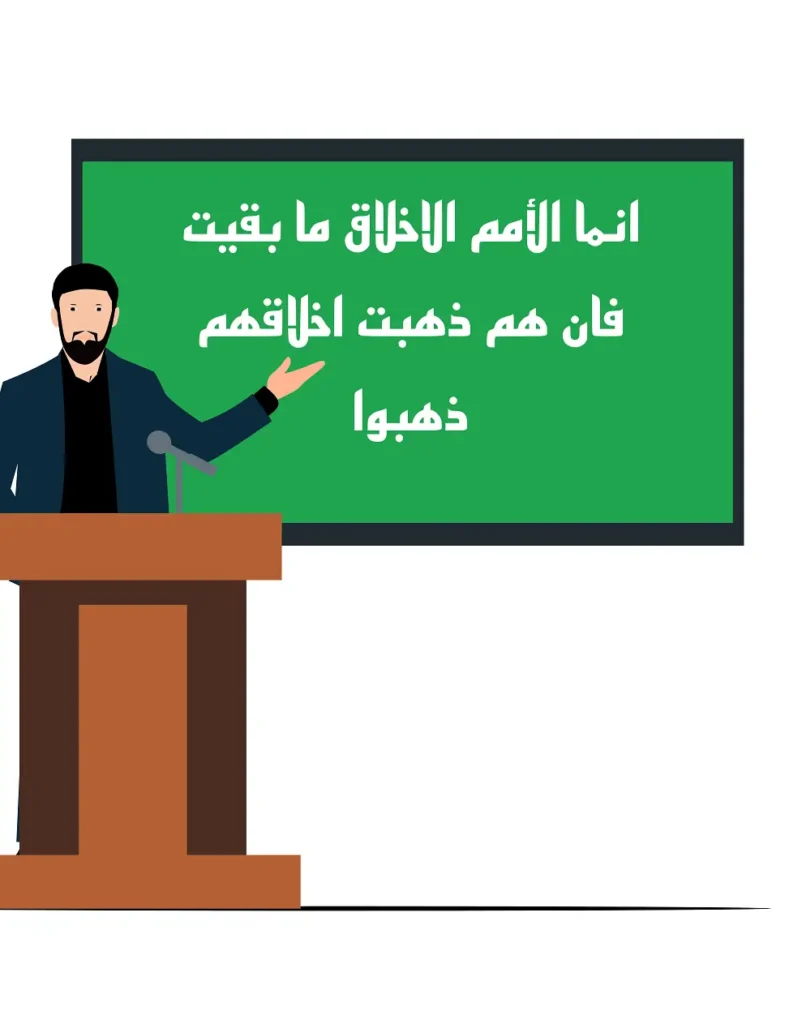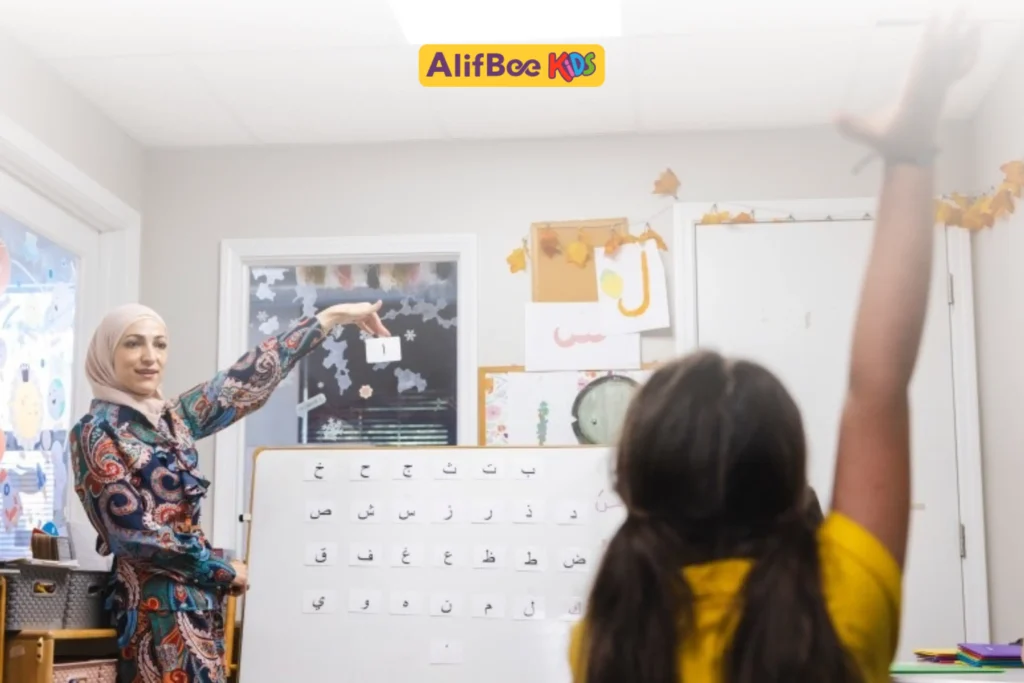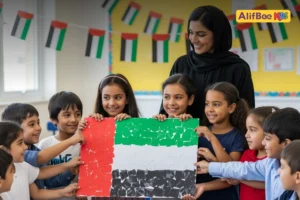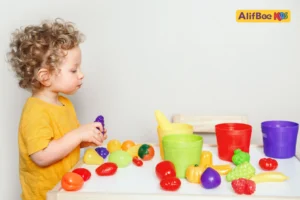Have you ever looked at your child and wondered, “Why is it easier to learn a language as a child?” Although your child appears to learn it naturally, you, as an adult learner, might have struggled for years with challenging grammar or the unfamiliar Arabic alphabet.
In this comprehensive blog post, we will explore the profound scientific and cognitive reasons behind this phenomenon, addressing all the questions that interest you. We will investigate the extraordinary brain’s capacity to learn new languages in kids and provide advice for parents who want to encourage early Arabic learning.
Why is it easier to learn a language as a child?
Neuroplasticity is a simple answer. The brains of children are more adaptive and flexible than those of adults. They can form new neural connections and reshape existing ones more quickly because their brains are more neuroplastic. This means their minds are constantly adapting, learning, and reorganizing—allowing them to acquire new skills more quickly, recover from mistakes more easily, and remain flexible in their thinking and responses.
This clearly explains why children learn languages with a speed and fluency unlike older people. Their minds absorb the Arabic language as a fundamental component of their thinking process, rather than simply memorizing rules.
How do Children Learn a Language
Researchers have spent years trying to determine exactly how children learn new languages so efficiently. What they’ve found is that a child’s brain is intrinsically wired differently for early language acquisition.

The human brain in early childhood is a linguistic sponge ready to pick up any language. This amazing capacity results from an increased sensitivity to phonemes, the smallest building unit of sound. In the first year of life, a baby’s brain starts to remove its capacity to differentiate between sounds not found in their mother language.
Early childhood exposure to Arabic enables a child to maintain and strengthen the neural networks necessary to manage the specific sounds of the Arabic language. Research demonstrates that the development of fresh languages is intimately tied to early brain development.
The Critical Period for Learning Arabic in Children
The critical period hypothesis is essential to the debate of how children learn a language. This theory posits that the brain is most effective at learning languages during a specific window of time, a critical stage of development. Here, children can easily learn a new language and achieve native-like fluency.
This crucial learning phase in language development is thought to begin at infancy and end around puberty. Through easy exposure, a child’s brain acquires fresh grammar and vocabulary of a language during this phase.
This stage is particularly important for Arabic due to its unique challenges:
- Unique Script: Although beautiful, the cursive, right-to-left Arabic script presents significant challenges for those from a fresh Latin-alphabet background. An adult’s brain processes the visual and spatial difficulties of this new script easily than a young child’s.
- Complex Phonology: Many of the sounds in Arabic are absent in English and other European languages. A child’s vocal and auditory systems are more flexible during the critical phase; therefore, they have a greater capacity to acquire and replicate sounds with accuracy.
- Intricate Grammar: With its methodical root and pattern rules, Arabic grammar is difficult. Although quite challenging for an adult who is trying to study it explicitly, a child’s remarkable pattern recognition capacity enables them to naturally absorb these guidelines through immersion.
At What Age Does Learning a New Language Start to Be More Difficult, and Why?
According to research, learning a new language becomes more challenging between the ages of 7 and 13. Although adults may still pick up new languages, the process is slower. hard, mainly because of two changes in the brain:
- Decreased Neuroplasticity: The brain’s ability to adapt decreases as it develops. More fixed neural connections cause the brain to concentrate more on the native tongue. Neural connections are more fixed; therefore, it focuses more on the native language. This slows down the brain’s ability to create new, fresh rules and sound classifications needed for a different language, such as Arabic.
- Increased Cognitive Filtering: Adult language learners often study and comprehend the new language primarily using their existing native language.
Reliance on translation and a tendency to produce new sounds using the rules of the native tongue and accent can hinder those learning late in life. This filter is less burdensome for a child’s brain, allowing them to learn the Arabic language as a standalone system.
Cognitive Advantages Children Have Over Adults
Beyond sheer brain plasticity, children learn languages due to several powerful cognitive advantages over adult language learners:
- Memory Flexibility: A child’s memory is incredibly receptive to the rote repetition needed for vocabulary acquisition. They haven’t yet filled their mental storage with years of specialized information, allowing them to prioritize the development of new language.
- Pattern Recognition Power: A child’s mind is a superb pattern recognition machine. When listening to the Arabic language, they subconsciously detect the systematic rules governing word formation and sentence structure. They don’t know the official grammar terms, but they know how the sounds change to indicate plurality or gender. This implicit learning ability is a massive advantage.
- Lack of Inhibition: Children learn by making mistakes and repeating. They lack the self-awareness and embarrassment that often prevent adults from speaking and practicing. This willingness to immerse themselves in the language accelerates their progress in learning Arabic.
The collective result is that children learn new language structures and pronunciation more easily and quickly, making their experience far more natural.
Environmental Factors That Support Children's Learning Arabic
Though the biological elements are strong, the environment plays a crucial role when learning Arabic.
- Immersion and Repetition: Being fully immersed in the language helps children flourish. This demonstrates why kids naturally learn a language so easily.
- Parental Encouragement: Actual interest and celebration of a child’s achievements fosters self-assurance and inspires continued learning.
- School and Community Programs: These programs provide lessons and peer interaction that children need to learn Arabic effectively.
Practical Tips for Parents Helping Their Children Learn Arabic
If you want your children to learn Arabic most effectively, follow these tips:
- Use Interactive Apps: Look for gamified Arabic learning apps, such as AlifBee Kids. These teach language and rules in a low-pressure, highly engaging setting, utilizing the child’s love of play.
- Read Simple Arabic Books Together: Find a place with your youngster and read brief, colorful Arabic books. Read and point to the words as this hastens their development by allowing them to link the spoken sounds to the visual reality of the Arabic language.
- Encourage Speaking at Home: Set a time for speaking Arabic at home, such as during dinner. Encourage the use of Arabic terms or sentences during this time. This will help children speak the language confidently and without any hesitation.
- Find Tutors or Group Classes: A good Arabic tutor or group class provides expert guidance on pronunciation and complex rules while ensuring consistent study. For a bilingual or multilingual future, external instruction complements home immersion.
- Seek International Content: Seek out authentic international Arabic content, such as children’s shows from the Middle East. This exposes your child to native accents and authentic language use in real-world settings.
Final Thoughts: Why Start Learning Arabic Early
According to science, children’s brains are more adaptable during their early years, making it easier for them to learn languages compared to adults. Begin teaching your child Arabic now so that they can grasp a rich and globally important language. Additionally, it will help them grow smarter and stronger and become more connected to their culture.
Take the first step by starting with the AlifBee Kids App. Make Arabic language learning fun, simple, and easy! Download the app to provide your child with an engaging and immersive learning experience.





